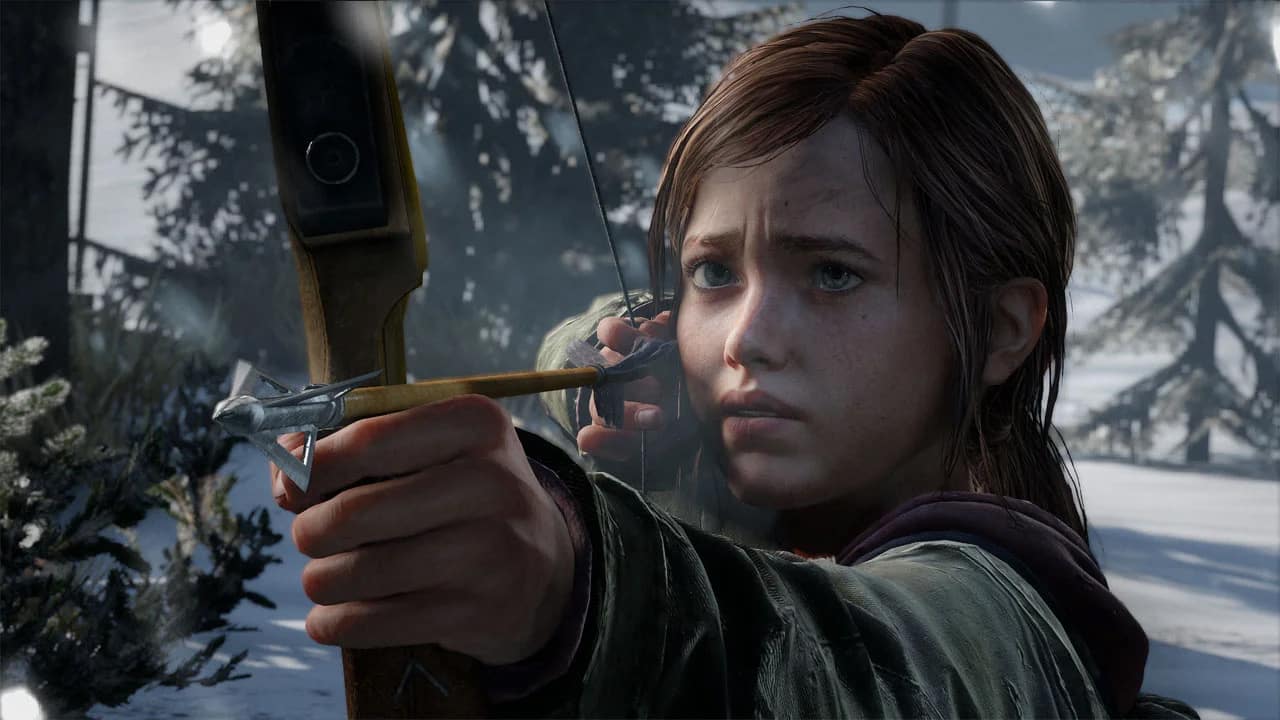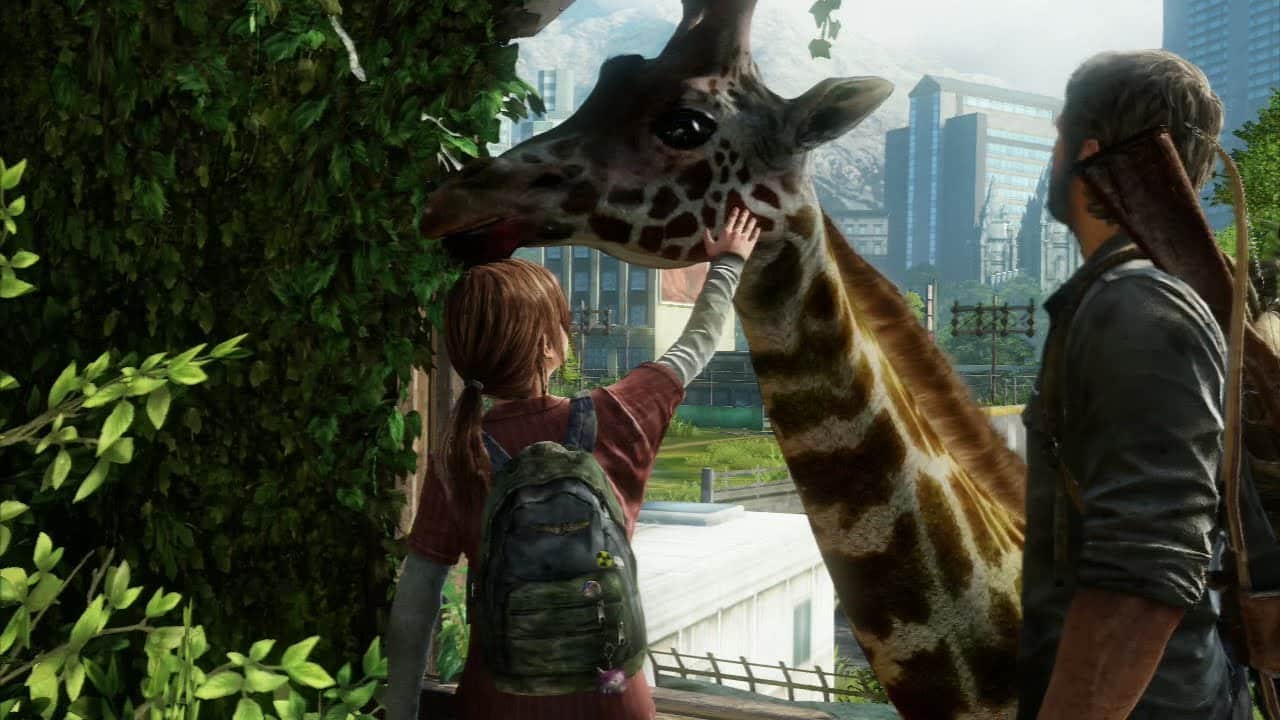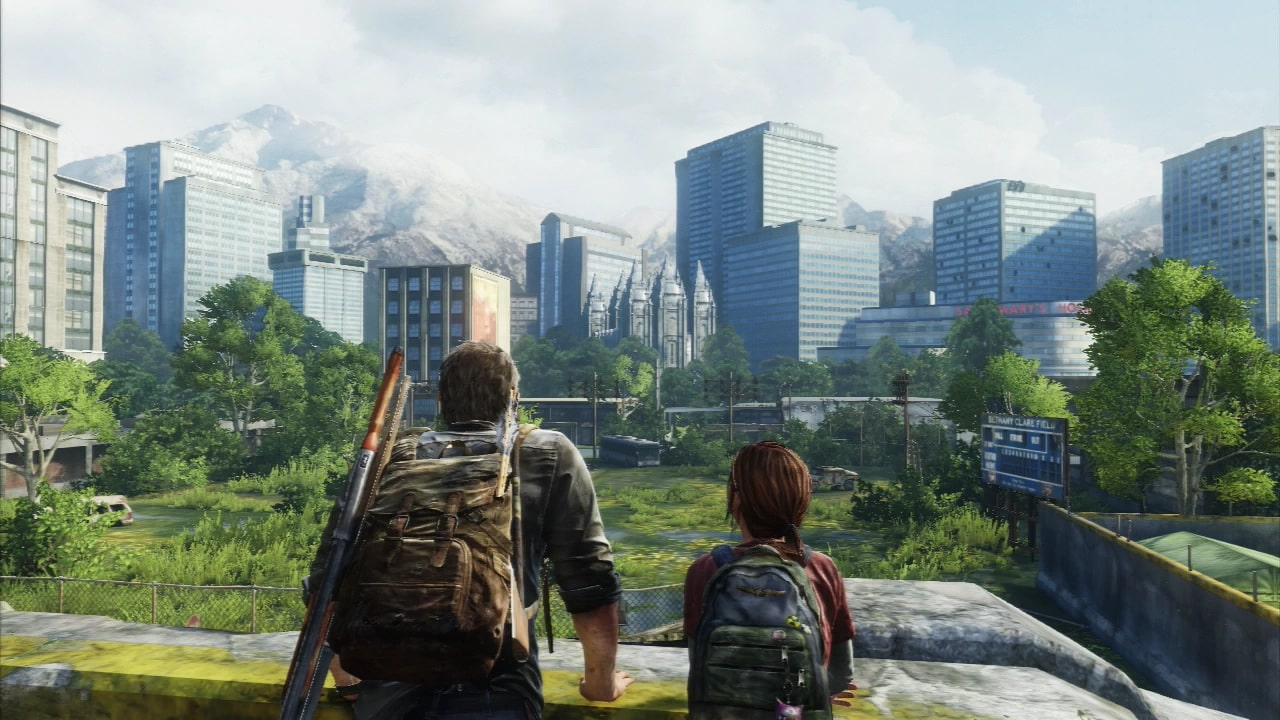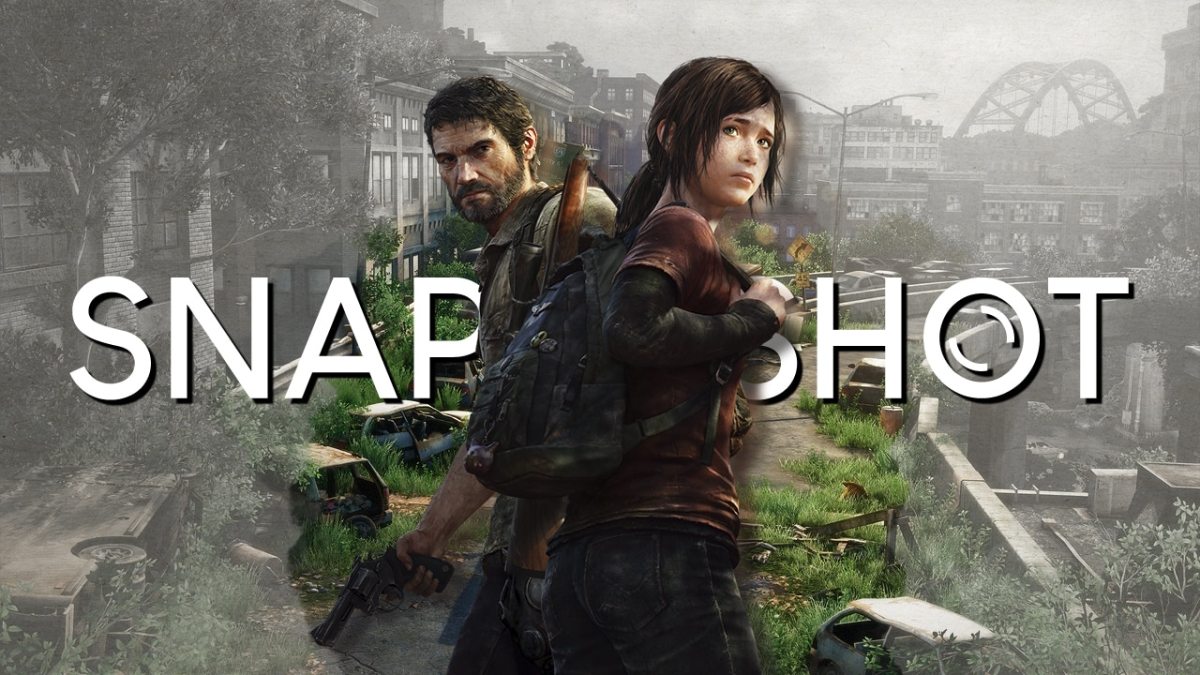Replaying The Last of Us at this point in 2020 is a hell of a thing. Right from the get-go, Joel and Ellie’s struggles through a world drowning in the aftermath of a global pandemic resonates on a completely different and far more familiar frequency than they did back when the game initially launched on PlayStation 3 back in 2013.
This was my first trip back through TLOU since that initial launch, and I was making the journey in preparation for next month’s The Last of Us Part II. I was curious to see which elements of the game held up for me over the years, which lost a bit of their luster, and which hit me even harder now in 2020. While some of the answers to those questions were pretty obvious, I was surprised when my absolute favorite moment of the replay ended up being one of the quietest scenes in the entire experience.
First and foremost, the incredible writing and performances still floored me every bit as much as they did in 2013. Obviously Troy Baker and Ashley Johnson as Joel and Ellie, but also Nolan North’s complete transformation into David. The art direction, world-building, and mounting tension of resource management in combat scenarios all meld together to create an expert tone that persists throughout the campaign. That said, a lot of the environmental puzzles like moving around a ladder and finding a pallet for Ellie to use to cross bodies of water never felt like demanding brain teasers, but rather perfunctory obstacles dropped in front of you. Despite this, the game and its themes hit me like a ton of bricks as I played from inside a home that I was encouraged not to leave for the safety of all society for the foreseeable future.

In particular, the moment in The Last of Us that resonated the most powerfully with me this time around was in its final act, as Joel and Ellie finally make their way to Salt Lake City in hopes of reaching the Fireflies. This comes immediately following the horrifying climax of the winter chapter, which was less about surviving against the shambling infected and more about peering straight into the darkness that lies in our fellow man. Joel and Ellie are outside of an abandoned highway now, long removed from the harsh winter. Joel and Ellie seem to have recovered from the physical injuries sustained throughout winter, though the lingering emotional and psychological trauma isn’t something that’ll be going away anytime soon.
As you make your way through the maze of abandoned cars, Ellie’s thoughts seem to be a thousand miles away. She hesitates before telling us about an extremely vivid dream she had the night before. She was on an airplane that began experiencing some heavy turbulence. She slowly made her way to the cockpit, only to realize that there was no pilot to be found. She tried to take control of the plane, but to no avail; I mean, she’s a kid — what do you expect? Plus, as she reminds us, she’s never even been in an airplane before, and given the state of things, there’s a good chance she never will be. The themes of this dream revolving around a complete lack of control as the world spirals out of control around you is something that Ellie has been dealing with her entire life. Sounds familiar, doesn’t it?
Ellie’s preoccupation also manifests itself brilliantly in the gameplay itself. We wander into an abandoned bus depot and see that we need to make our way up to a ledge with a ladder on top. Joel moves over and prepares to give her a boost up to the next floor. We use the button prompt, the camera shifts in the way it has a dozen times before throughout the game, but nothing happens. Puzzled, Joel looks over to see a despondent Ellie sitting on a bench across the room.

This complete subversion of our expectations gives us profound insight into Ellie’s current mental state through the mechanics that we’ve become so familiar with over the past 10 hours. Joel has to call out to her several times to jostle her out of her haze, and she slowly makes her way over and clambers up to the ledge. She moves to slide the ladder down, but suddenly just drops it as she cries out in excitement and runs offscreen.
Knowing what was coming made this next bit all the more powerful. We’ve been conditioned this entire game to expect the absolute worst out of a situation. Both Joel and the first-time player rush to grab the ladder and make their way up towards the direction Ellie ran off in. We cycle through our weapons and take stock of our ammo, making sure everything’s reloaded for the impending conflict. Gustavo Santaolalla’s mesmerizing score begins to whip around underneath us with the danger of a downed powerline. We scramble towards Ellie and call out to her, our fingers hovering above the trigger in anticipation. But a moment of panic suddenly becomes a moment of wonder as we realize that Ellie didn’t run from danger, but rather towards the awe of the game’s now-iconic giraffes.
Everything about this scene just works perfectly in unison to deliver a much needed dose of catharsis to the characters and the player alike. The ominous score morphs into the most beautiful and hopeful song that we’ve heard throughout the game. Inching close to the giraffe as it feeds on the vines that have taken over this man-made structure allows Joel to remember a small glimpse of what life was like before the world went to hell. Calling Ellie over to come pet the animal gives her an experience that not only has she never really had, but probably thought she’d go her entire life without. The gravity of this moment for the two of them makes us as the player take stock of the things we take for granted in life in a powerful and profound way.

This discovery seems to shake Ellie out of her funk. Her excitement as she runs up the stairs to follow the giraffe is the happiest we’ve seen her save for a few precious moments in Left Behind. When we finally make our way to the roof, our view opens to reveal the full beauty of the situation: The herd of giraffes has not only survived, but managed to thrive in this new world and carve out a small place for themselves.
You’re allowed to linger on this for as long as you like, and the scene only moves forward when you’re ready to.
The simple exchange between Joel and Ellie as they look on is an effective callback to a moment they shared earlier on in the game, as well as a thesis statement on the entire perilous journey for hope that we’ve been on this whole time. “Is it everything you were hoping for?” Joel asks Ellie. She simply replies, “It’s got its ups and downs… but you can’t deny the view.” If that’s not a reflection on the spectrum of a life fully lived, I don’t know what is.






Published: May 26, 2020 11:00 am